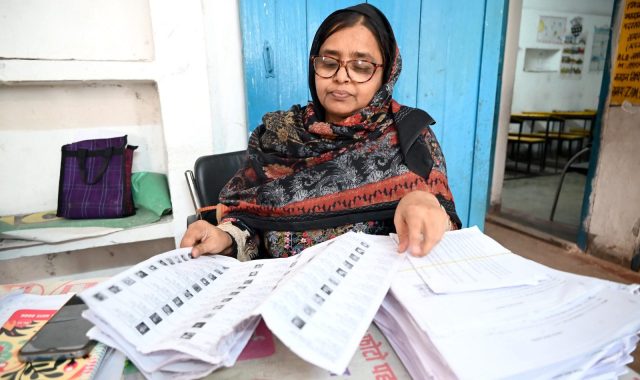
“Might is right” is a common phrase used to describe lawlessness, to denote that law can be trampled upon if one has the strength, physical or financial.
The phrase gained currency after the book Might is Right: Or the Survival of the Fittest by Arthur Desmond was published in 1896. It continues to be associated with the idea that power and strength are the ultimate determinants of what is right or just.
A new variant of the old dictum seems to be playing out as we witness those vested with the might of law and authority acting in a questionable and seemingly unfair manner threatening to trample upon the rights of the powerless.
Those who have the might of authority allow illegal buildings to rise till their demolition is ordered to demonstrate the law’s might. Unauthorised constructions are permitted by a corrupt or incapable administration till it is compelled to use the draconian power of law to remove them. The menace of stray animals is allowed to persist till the courts pass unreasonable orders allowing gleeful politicians to demonstrate their new resolve to deal with old problems. Slums continue to grow till they become eyesores of subhuman conditions and turn into opportunities for builders after they have been squeezed sufficiently for electoral gains. Illegal migrants are allowed to sneak in till it assumes unmanageable proportion. Allegedly “ineligible” persons are included in the electoral rolls till the institution meant to ensure their sanctity invents arbitrary procedures for attempting to weed them out.
The Election Commission of India (EC), which has unquestionable authority over the preparation of electoral roll and the conduct of elections, chose to adopt a procedure that has no precedence and little logic. Subjecting about eight crore people to an identification parade by sidestepping its own recognition of their identity and eligibility — could there be a more unilateral exercise of its might by a statutory authority? No doubt, it has the power, and the independence to decide its own procedure but is the EC not liable to explain why it has discarded a time-tested procedure of its own making? Why has it invented an arrangement that makes it so easy for an elector to be excluded after having been admitted in the electoral role following due process? Why should the mere non-submission of the enumeration form by an elector be the cause of his removal, even if he has existed on the roll for many years? Theoretically, if a voter was 21 in 1951 when the first electoral roll was prepared, he would be 95 years old in 2025 but if he has failed to sign and submit the enumeration form by July 25, 2025, his name would be excluded from the roll. Is the right to vote akin to a driving license that needs to be renewed from time to time and eligibility proved periodically? Is a constitutional right subordinate to a clerical process, especially when the elector has gone through the process once, successfully and satisfactorily? To top it all, the deletion is not treated as “deletion” but obliteration with no recourse to appeal, save a generous offer of applying anew. How merciful!
The last twist of this euthanasic approach is that the EC persuasively argued before another constitutional body that every person whose name was excluded from the draft electoral roll could file a new claim during the thirty days “long” claims and objections period. How kind of the constitutional protectors of rights to preserve their might and let ordinary citizens fight for their right by subjecting themselves to a labyrinthine process.
As if this approach wasn’t enough, the Supreme Court had earlier said that it would step in if there was a “mass exclusion”. Is the infringement of an individual’s right not an adequate “violation of law”, worthy of the Court’s legal might? Is the quest for justice a mass movement that should follow an epidemic of injustice?
Who will protect the voting right of a citizen born in India who has no document to establish citizenship because his birth was not registered, who didn’t go to school even if there’s right to education, if he is landless, if he hasn’t availed any benefit from the government except ration through his ration card, which he was able to obtain by showing an Aadhaar card? The Aadhaar card also enabled him to secure his constitutional right to vote by being admitted in the electoral roll earlier. But the new meaning of rightful existence is the possession of an “acceptable” document that was not provided by the system in the first place.
I’m reminded of an episode of Satyamev Jayate, a television show hosted by a celebrity, in which a khap panchayat leader was reprimanded for not respecting the decision of the courts. Quite unmoved by the host’s chiding, the old rustic said, “court faisla karti hai, hamesha insaf nahin karti (The courts decide but not always deliver justice).”
In its interim order of August, the Supreme Court showed that it stood for justice and transparency and raised hopes that it will use its might to continue to protect the citizen’s rights and support not only what is legal but also what is “just and fair”.
Let the hope and right of the meek inheriting the earth not be extinguished by the might of authority.
The writer is a former election commissioner